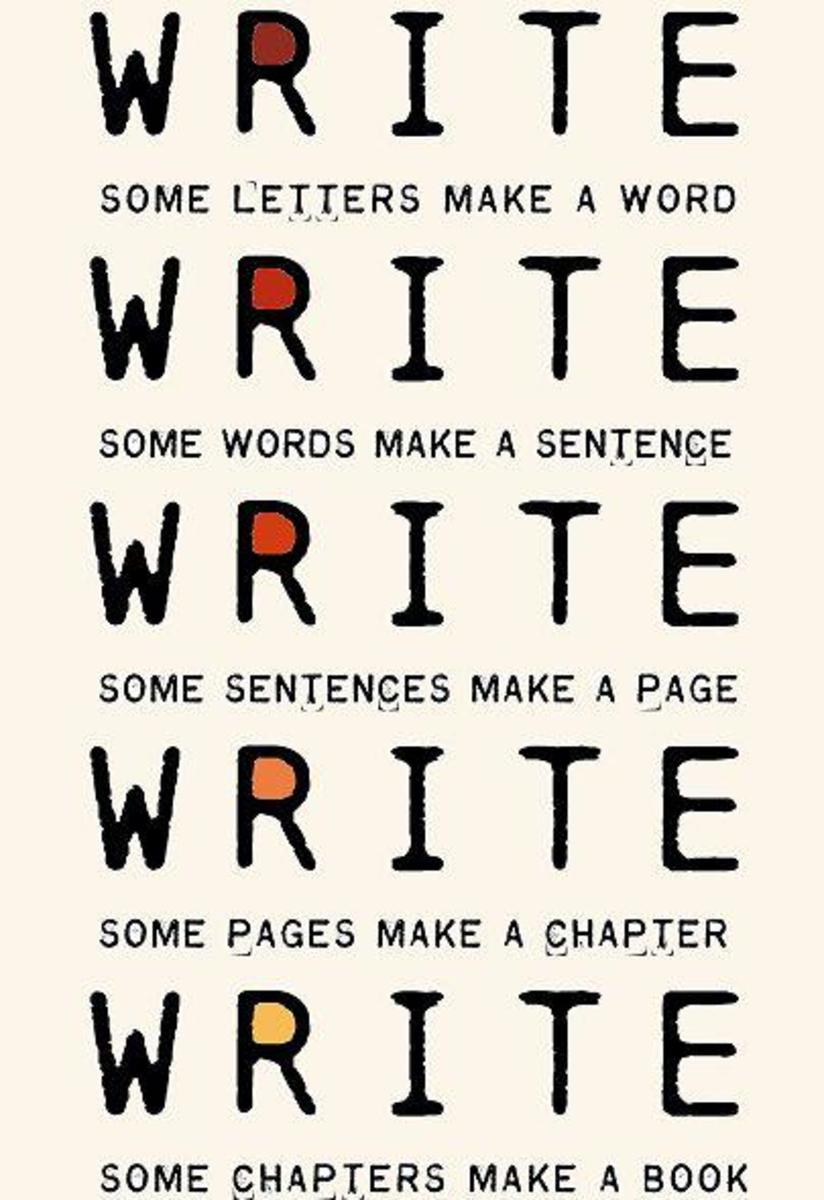How to write a book and become an author - How to start planning

This is an article on how to begin planning and writing a book, for first time authors. There are many ways of writing, many techniques one can apply to make the job easier or more satisfactory, so many in fact that no one person could possibly know them all, and so I will share with you the ones I find to be the most helpful and most adaptive for general novel or book writing.
Before even beginning to plan anything, I recommend you answer these questions and try not to think about the answers too much as you will no doubt come back and change one or two of them (maybe even all of them.)
- Decide on a basic theme/genre and time-set for your novel (e.g. Space, Fantasy, medieval, Historic etc..)
- Choose an outline of the scale you want as a main plot (saving the universe? Rescuing a damsel in distress? Completing a job or task?)
- Choose one or two things you would like the story to focus on (E.g. an artifact, a character, a faction, a religion or a combination of these elements.) Remember you can, and most likely will, come back and change your thoughts on this at anytime so there is no need to decide anything right away, though it will help to aim for something even if that thing will change at a later date.
Before the roaring fire of your imagination begins to plan out your book, you may want to create a little spark to push your mind into gear (A book of 1000 pages starts with a single word), to do this, I recommend creating and designing the map of the location your story takes place in. I know this may sound like a thing to do later on, or something unimportant that may never even get done, but trust me, a good and effective way to ease your mind into working on a story is to gently allow your mind to unravel the world you want to create at a pace that will help you flow into the story around a location that good quite easily be real.
http://memymoi.hubpages.com/hub/How-to-design-a-map-for-a-fictional-fantasy-world-simple-steps
The link above will will take you to a guide I have written on how to create a map for a fantasy novel (though the principles may be applied to any genre.) I recommend you have a look and see what your brain comes up with.
You should now not only have a world for a story to take place in, but a setting and a few features on that world, for instance castles, temples, lakes and dams.
Now you have a world to visualise your story in, it's time to make a main character and their background. names may be fashioned in later on, though if you have an idea or inspiration you may want to write them all down somewhere, as I can tell you from experience that names may come easy sometimes, but at other time they can be very very tricky and its unpleasant to be in the flow of writing or planning and have to stop to think of a name, losing the flow of the writing and creativity you had built up.
Making a character is simple:
- Male/Female? (or Alien......)
- Masculine/Feminine (personality wise)
- Basic attributes (shy, determined, generous etc...)
- Talents or skills (fighting is a common choice, also a craft or survival skill. These may be added in mid-book so no need to list all talents from the first chapter)
- Relations (family/friends) This may take more time (but not difficulty), as it involves more character creation and a family tree to be set up. Once you have done so however it will be very helpful to the continuation of your story. (and again, no need to do it all at once, you can come and go and change as you wish)
Now that you have both a world to write in, and a character to write about, all you need is something of said character to do in said world. A plot!
There are two ways of doing this:
- A disaster occurs in the life of this character (a few beginning chapters before the disaster and a chapter for it) before a plot is revealed and a quest or task is apparent to the reader. (E.g. family member dies, quest for vengeance OR Financial trouble, attempt to earn money)
- A past disaster or situation is apparent from the beginning and a solution is decided within the first or second chapter.
The main types of plot are:
-Vengeance.
-Personal gain.
-helping community.
-saving lives.
And of course there are others, which you may have found in books you have read, on the internet or through any other source of information.
Once you have a world, a character and a plot, all you have left is the story itself. But before you start writing consider making a few key points in the plots timeline that you wish to arrive at and use these as "checkpoints". What i mean to say is, focus on arriving not at the end of the plot or book, but at each respective point in the story. For example, before your character can slay the dragon (classic example) he must first get a sword, so for the moment forget the dragon and write purely about his current objective: the sword. These checkpoints can be as small as your character meeting someone important, or as big as the slaying of the dragon himself.
After that step, start writing, if you feel as you write that you would like to describe something you haven't yet thought about in detail then take a break from writing and plan out that thing, do not attempt to plan as you writer as this may become confusing and troublesome to work with, try to see the writing and the planing elements as the two entirely separate parts of writing a book.
REMEMBER: A book of 1000 pages, starts with a single word.
Take it one step at a time. Good luck, and enjoy. I hope this article was of help :)
If you have any suggestion or queries please comment and I will address them swiftly.
Thank you
Take a look at some of my work:
- A Show of Audacity - A short story by memymoi
My first short story, with a nice plot twist and a decent writing style.






